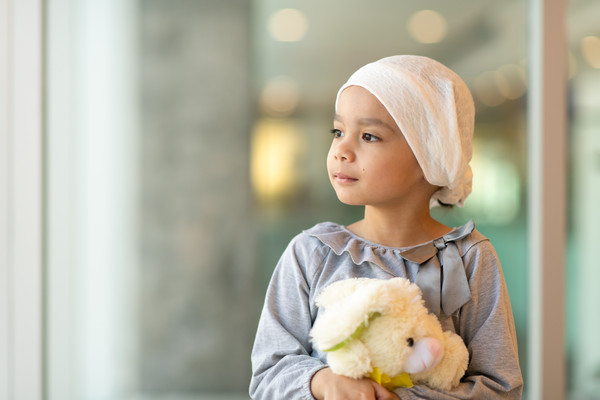
Treatment for many childhood cancers, such as leukemia, brain tumors, and neuroblastoma, usually takes two to five years. So, how do you manage the health of a child with cancer during the long treatment period?
Lim Yeon-jeong, a professor of pediatrics at Chungnam National University Hospital, recently provided guidance on caring for children with cancer during and after treatment, appearing on the hospital’s YouTube channel.
Treatment for various pediatric cancers, such as leukemia, brain tumors, and neuroblastoma, typically spans two to five years. Therefore, how should children with cancer take care of their health during this extended treatment period?
Question: What are the possible side effects of chemotherapy?
Answer: Chemotherapy for childhood cancer is indeed intensive and typically involves drugs that inhibit the process of cell division. While this approach can effectively target and kill cancer cells, it also affects the normal cells in the body that continually regenerate, including those responsible for hair, nails, and blood cells. Consequently, children undergoing chemotherapy may experience side effects such as hair loss and slower wound healing.
A reduction in the count of white blood cells, red blood cells, and platelets, primarily caused by decreased blood cell production, can result in lowered immunity, anemia, and impaired blood clotting. Fortunately, the incidence of side effects like vomiting and nausea from chemotherapy has significantly decreased over time due to the development of various medications designed to mitigate these symptoms.
Q: How should children take care of their health during cancer treatment?
A: During cancer treatment, when their immune system is compromised, it's crucial to practice good personal hygiene to reduce the risk of infection. This includes measures such as wearing a mask, regular handwashing, gargling, and taking sitz baths for cleanliness. Additionally, it's important for them to be cautious about their diet. They should avoid undercooked foods like soft-boiled eggs and opt for fruits and vegetables that can be thoroughly peeled. When consuming delivered food, reheating it if possible is advisable to ensure safety. These precautions can help protect the health of children undergoing cancer treatment.
While undergoing treatment for childhood cancer, it remains crucial for children to continue growing and developing. Therefore, ensuring they receive sufficient calories, particularly adequate protein, is of paramount importance. Even if their appetite is reduced or they tend to snack frequently, it is essential to support them in maintaining a healthy diet, even if it entails adding some extra flavor or sweetness to their meals.
Increasing calorie intake by frying food in oil or incorporating kid-friendly meats like ham can be helpful. Adding sauces or their favorite beverages, like cola, to meals can also encourage them to eat more. However, it remains crucial to prioritize personal hygiene practices such as frequent handwashing, gargling, and mask-wearing, especially during treatment. Additionally, opting for fully cooked foods can minimize the risk of infection and contribute to their overall well-being.
During their treatment, children may find it challenging to attend school, leading to a reduction in physical activity and stamina. It becomes vital to allocate time for physical activities like calisthenics and walks despite the treatment. These activities can help maintain their physical well-being and provide a sense of normalcy during a challenging time.
Q: How should children manage their health after cancer treatment?
A: They will need to work on re-establishing a healthy lifestyle. Try to keep up with school and daily routines as much as possible, and eat plenty of protein and vegetables as they are still growing. As an adult, early education is needed to help them quit smoking and stop drinking alcohol. Avoid carcinogens such as alcohol and tobacco, and eat a balanced diet, including vegetables.
Q: What should pediatric cancer patients be aware of in their daily lives?
A: Moderate exercise is indeed beneficial, but it's crucial to steer clear of excessive exercise, extreme diets, and overconsumption of protein shakes. Striking a balance in physical activity and maintaining a healthy diet is key. Additionally, staying well-hydrated by drinking plenty of fluids is essential for their overall health and recovery.
Q: How should childhood cancer patients be vaccinated?
A: Immunizations against common viruses are typically recommended, though their timing and effectiveness can vary based on the treatment schedule and the individual's immune status. While immunizations may be somewhat less effective in this population, consulting with a doctor about receiving vaccinations against viruses like the flu or coronavirus remains a valuable preventive measure. It's important to note that during intensive care or when the immune system is compromised, especially for live vaccines, vaccinations should be administered only after the individual's immunity has fully recovered to ensure their safety and efficacy.
Q: How do they manage side effects after childhood cancer treatment?
A: The occurrence of side effects during childhood cancer treatment can vary depending on the type of cancer and the treatment regimen. While some patients may experience side effects, not all do. Treatments for childhood cancer often involve drugs that have undergone extensive clinical trials worldwide, providing a substantial understanding of potential side effects. Given the high cure rates, treatment plans are personalized to minimize side effects as much as possible. Additionally, patients receive regular follow-up care after treatment to monitor for any lingering effects and ensure their long-term well-being.

